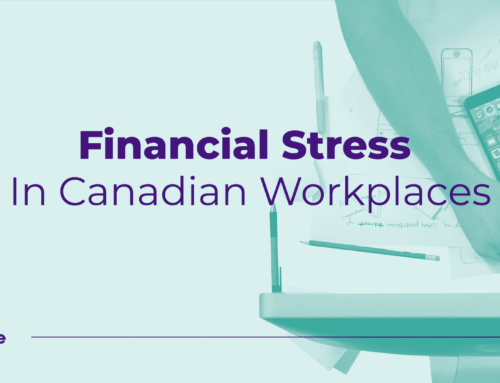Are you finding yourself overwhelmed by all the various financial terms and numbers on your paystub? Well, one of the most important figures in your payslip is your net income. Your net income is the amount of money that you have available to spend and use towards your budget. Let’s learn more.
What is Net Income?
Your income is the amount of money you earn, whether it’s from your day-job, a side-gig or your government benefits. Your income may vary slightly if you work irregular shifts, or you may get the same wage bi-weekly, monthly and yearly. Likewise, you’re probably familiar with the idea that you will earn less than what your initial salary offer was. Once you subtract expenses such as income taxes and pretax contributions, you’ll arrive at your personal net income. It’s important to note that income tax varies from province to province and is dependent on how much you earn. You can find out more here.
Net income is the amount an individual earns after subtracting taxes and other deductions from gross income. This can also be referred to as net profit, net earnings or your bottom line. For a business, net income is the amount of revenue left after subtracting all expenses, taxes and costs. It’s important to check your payslip and figure out what your net income is. This will help you plan a successful budget and allow you to take control of your money.
Net Income vs. Gross Income
As we mentioned, net income is the amount of money you earn after tax. This is the amount of money you’d use to budget, pay your bills, mortgage and more. Your gross income is the amount of money you earn before tax. Gross income is used by lenders and landlords to determine what you can afford. It’s important to understand your gross income and how to calculate your adjusted gross income and modified adjusted gross income. This can lead to savings on your taxes.
It’s important to stay informed about your own finances, but also know when you need with help with them. A financial advisor or tax advisor can help you make the most of your income and help you figure out if you’re paying the right amount of money towards your taxes. Meanwhile, when tax season comes around, you will know if you’re entitled to money back.
How Does Net Income Work?
As mentioned, your net income is the amount you earn after tax and is not necessarily how much you earn. But, finding the value of your net income takes a small calculation. Firstly, you must add up all your income, whether it’s from one job or multiple sources. This calculated altogether is your gross income. Secondly, you must subtract your payroll taxes and other charges, to find out your exact net income. Your deductions may vary depending on your current situation and employer, but here are examples of some that are primarily included:
- Income Tax
- Canada Pension Plan
- Employer Insurance
- Health Insurance Premiums
- Retirement Plan Contributions
Once you familiarize yourself with the different tax deductions applicable to you, you can then calculate your net income effectively. You can also successfully use this figure to report your income for a tax return. There are plenty of tax aid software that will help you figure out your net income and recognize any hidden incomes you may have forgotten to account for.
What Are The Different Types Of Income?
When it comes to figuring out your income, it’s most common for people to have one. This can be your weekly or monthly paycheck from your current job. But at times, many people may take on side-gigs, investing or renting out rooms. Let’s discover some other types of income:
- Selling items online (eg. Etsy, Depop, Ebay or Amazon)
- A second job
- Social Security payments
- Royalties, copyrights, patents
Remember, child support payments you receive are not considered part of your gross income for tax purposes. Whether alimony is considered part of your income is all dependent on when your divorce settlement was filed.
How can I increase my income?
There are many ways you can earn more money. Some people receive money from passive income sources that don’t require you to trade your labour for money, examples of this are:
- Renting out rooms, homes, or apartment
- Capital gains, dividends, or interest on investments
- Interest-bearing accounts, such as savings accounts or some checking accounts
Using MyMarble To Help You Budget Your Net Income
Once you have your net income calculated, you’re probably wondering what the best way is to effectively budget your money. If you’re struggling to figure out how you can make the most of your income to benefits your fixed expenses and debt payments, the MyMarble Dashboard can help.
The MyMarble Dashboard allows you to review your current income and spending to discover the best ways to improve your credit and financial wellbeing. We provide you with access to your monthly reports using your connected bank account. From here, MyMarble can form personalized recommendations and opportunities for you to utilize your income to help you budget. Most importantly, this can help you pay off your debt faster and boost your credit score. Using the MyMarble Dashboard is an ideal way to help you discover where your money is going, whether it’s on bills, debt or too many leisure activities. The Dashboard will help you learn about the trends and patterns you’ve made over-time improving your habits.
To learn more about how you can get started with MyMarble, head over to our website and sign-up today: https://portal.mymarble.ca/sign-up.






